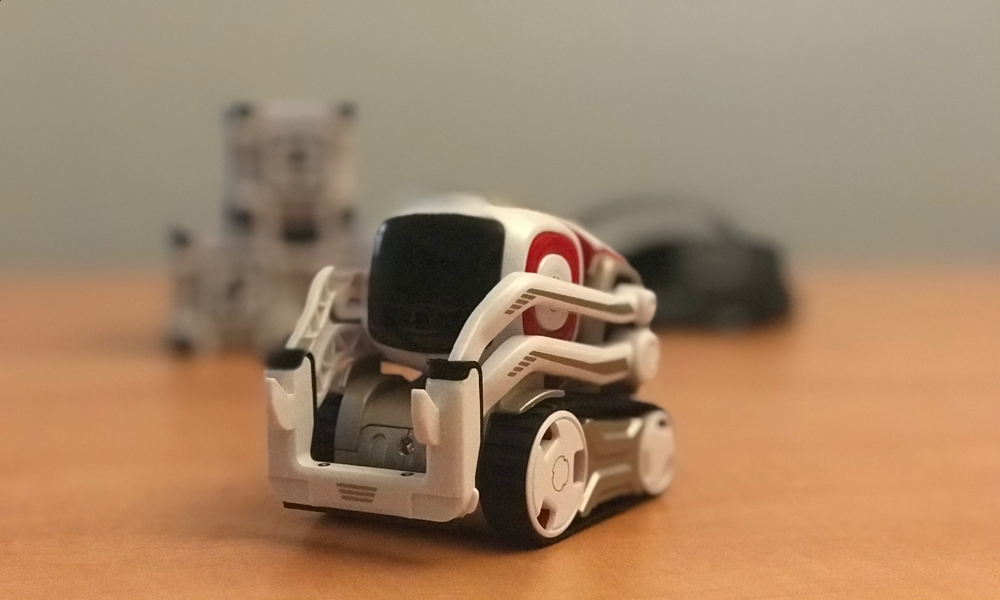Toy Robot Maker Anki Shutting Down Means Some of Its Robots May Stop Working Too

Toggle Dark Mode
Back in 2013, a small robotics startup named Anki made a big splash when it appeared on stage at Apple’s Worldwide Developers Conference to demo what was hailed as the future of AI toys, a platform known as Anki Drive that showed how an iPhone or iPad could be used as the brain for a set of Bluetooth cars that could intelligently drive themselves around a track. It was a cool demo, even if it seemed like little more than a proof of concept at the time.
Anki ran with it, however, and it’s Drive, and later Overdrive car racing kits became a popular item on the shelves of Apple Stores around the world, with the company even getting into branding deals that allows them to release a “Fast and Furious” edition of the racing game, where users could not only race each other around the track, but even engage in virtual combat, all controlled from an app running on an iPhone, iPad, or iPod touch. The racing games were followed up by a pair of toy robots — Cozmo and Vector — that were clearly inspired by Pixar’s Wall-E, and were intended to demonstrate even more AI features and an evolution of home robots.
Despite the cool factor and relative popularity of its products, however, and over $200 million in funding raised over the past few years, Anki is now shutting down, Recode reveals. CEO Boris Sofman told employees yesterday that they will be terminated this week, with only a week’s severance pay for the almost 200 employees that were with the company. Anki had been struggling to find more funding after its latest round of financing fell through, and Sofman was clearly unable to do so.
Back in 2017, Anki was pushing $100 million in revenue, and it had expected to exceed that figure in 2018, and apparently even big players like Microsoft, Amazon, and Comcast were sniffing around at a possible acquisition, so it’s not entirely clear why things fell through, but a company spokesperson indicated that they “pursued every financial avenue” but after losing an important strategic investor that company simply wasn’t able to make a go of it.
A bigger concern, however, is what this means for customers of Anki’s products — especially is most recent autonomous robot, Vector. Anki’s products have very little intelligence built into their own silicone, instead relying on external apps and services to act as their brain.
Most of Anki’s products — Drive, OverDrive, and Cozmo, rely primarily on a companion iOS app, and while the app itself may or may not remain on the App Store, as long as users keep it installed on their devices, they should be able to continue using these toys for as long as these apps are supported.
Vector is another matter, however. In order to create a truly autonomous robotic pet that didn’t require the loading of an iOS app, Anki put much of Vector’s smarts up in the cloud, and with Anki going away, this raises the question of whether Vector will continue to be his cute little self, or if those who purchased the $250 robotic toy will suddenly be left with a lobotomized paperweight once Anki’s cloud servers eventually shut down.
Anki’s sudden move highlights how many modern digital products are at the mercy of the companies who provide the back-end for them. If the companies providing the service fold, or even simply decide to change direction, users are suddenly left with physical pieces of hardware that may become virtually useless, or in the very least considerably less functional. Voice assistant speakers, for example, are only as good as the company behind them — and although it’s safe to say that Apple, Amazon, and Google aren’t likely to be going anywhere, there’s no guarantee that their commitment to their products will remain the same; Google in particular has shown a certain capriciousness to many of its products and services in the past.
Anki is perhaps a more extreme example, but Vector also wasn’t an inexpensive product, and the company was once a huge name in the robotics world — Apple is quite selective about who it shares stage time with at its events — and the company had a solid enough track record that nobody would have expected it to suddenly fold, potentially leaving its former customers with useless toys.
At the end of the day, as sad as Anki’s shutdown will be for some, it also serves as an important warning call to make us think about how much our latest electronic toys are wholly dependent on the health of the companies that are behind them.






